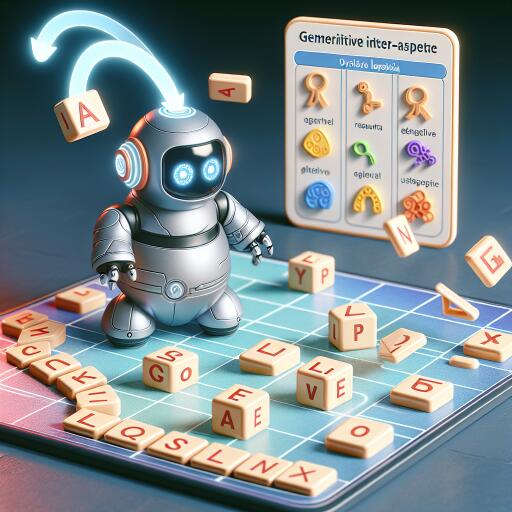Dysolve: Using AI To Beat Dyslexia Through Generative Games
AI technology, spearheaded by advances such as large language models and predictive generative transformers, has revolutionized the way we interact with the digital world. Yet, amidst this rapid innovation, Dr. Coral Hoh is channeling the groundbreaking capabilities of AI towards a noble and challenging cause: enhancing word accessibility for individuals with dyslexia. Dyslexia, affecting roughly 20% of the population, is a neurobiological disorder that complicates word recognition, spelling, and decoding abilities. Despite being widely misdiagnosed, solutions for dyslexia remain scarce, prompting experts like Dr. Hoh to seek innovative interventions.
Introducing Dysolve: the pioneering computer program utilizing AI to tackle dyslexia and other language-related disorders uniquely—eschewing pre-established testing kits for interactive, AI-generated games that assess and address dyslexia on a personalized basis.
Dysolve conceptualizes dyslexia as a coding dilemma originating from the brain’s mismanagement of information, causing reading to become an arduous task for those affected. This perspective is based on the understanding that, for the average literate individual, reading occurs seamlessly, a phenomenon underscored by how people can easily decipher jumbled words as long as the first and last letters are correctly placed.
According to Dr. Hoh, dyslexia disrupts this automatic decoding mechanism at a more fundamental level. She likens the challenge to a malfunction within an operating system, suggesting that the reading difficulties stem from “code errors” in the brain’s visual language processing. It is here, in the nitty-gritty of our cognitive code, that Dysolve aims to make its mark.
By treating dyslexia as a computational issue, Dysolve leverages AI to process vast amounts of information swiftly, identifying and rectifying these unique “code errors” in a way no human could. The AI’s role is to refine the information’s signaling rather than merely generate words, analogous to adjusting a visual signal with glasses to correct vision. This analogy illustrates the program’s innovative approach—instead of a static correction, it seeks a dynamic solution to the user’s unique challenges.
Dysolve employs AI to dynamically craft games that reveal the nature of these cognitive discrepancies and trains the brain to navigate them. The games, designed to be engaging and ever-changing, last between one to three minutes ensuring users remain captivated while the underlying algorithm works on diagnosing and treating the dyslexia.
Remarkably, users of Dysolve have shown significant progress, with students starting below the 25th percentile reaching above the 50th percentile in just one year. The program has proven its efficacy, elevating users to their appropriate reading levels within 1-2 years and ensuring these improvements are enduring, negating the need for continuous program use.
The potential societal impact of Dysolve is significant, considering the high costs associated with traditional dyslexia services. With expenses upwards of $20,000 per student annually in certain states, Dysolve offers a cost-effective alternative below $1,000, potentially saving schools and districts considerable resources.
As clinical trials with 200 participants continue, the anticipation for Dysolve’s preliminary results grows. Set for release in the coming weeks, these findings promise to shed further light on the program’s effectiveness and its potential to transform the lives of those grappling with dyslexia through the power of AI and generative games.










